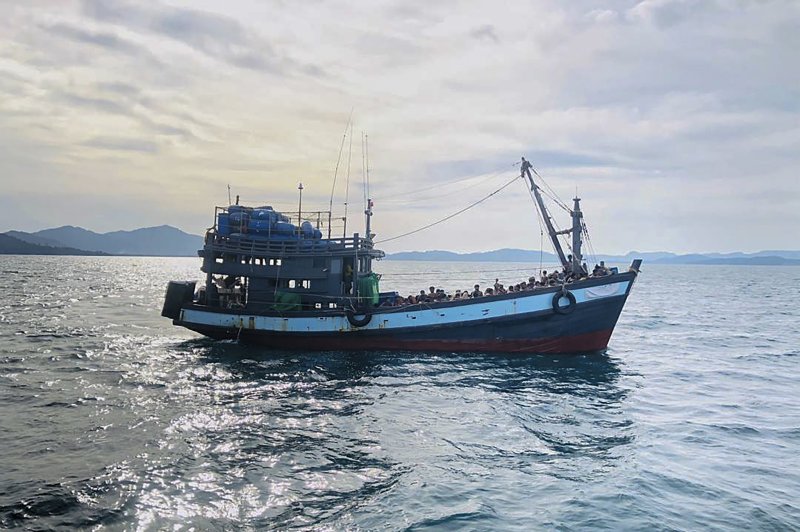
New research suggests dozens of threatened and endangered fish species are regularly caught and sold around the world. Photo by Maritime Enforcement Agency/EPA-EFE
Sept. 21 (UPI) -- Despite Australia's international reputation for high quality marine conservation programming, new research out of the University of Queensland suggests Australia's seafood eaters are regularly consuming engendered species.
The findings, published Monday in the journal Nature Communications, suggest the consumption of endangered fish species isn't just a problem Down Under -- it is a global crisis
When researchers surveyed commercial catch and seafood import data, they found 92 endangered and 11 critically endangered species of seafood are being caught elsewhere before being imported and sold at grocery stores, fish markets and restaurants in Australia, Europe and elsewhere.
That's because it's perfectly legal for commercial fishers to catch species threatened with extinction. Additionally, seafood is not required to be labeled according to its species.
"This means that the 'fish', 'flake' or 'cod' that Australians typically order at the fish and chip shop could be critically endangered," lead researcher Leslie Roberson said in a news release.
"Australian seafood is not as sustainable as consumers would like to think, and it's definitely not in line with many of the large international conservation agreements that Australia has signed to protect threatened species and ecosystems," said Roberson, a doctoral candidate at the University of Queensland.
Home to the Great Barrier Reef and tremendous marine biodiversity, Australia has earned a reputation for progressive marine conservation programming.
But according to the latest study, unsustainable seafood importation and consumption patterns can undermine conservation efforts at home.
"Australia imports around 75 per cent of the seafood we consume and is internationally regarded as having effective conservation and fisheries management policies," said study co-author Carissa Klein.
"When importing seafood from other places, we are displacing any social or environmental problems associated with fishing to that place, which is likely to have less capacity to sustainably manage its ocean," Klein, senior research fellow at the University of Queensland.
According to Roberson, Klein and their colleagues, the estimates for the number of threatened species currently being caught by commercial fisheries are quite conservative.
The study authors suggest that part of the problem is that the international seafood trade is highly complex, making it difficult to track and regulate. One part of a fish may be processed in China, but the rest may go to Europe, they said.
"A typical situation might look something like -- a fishing boat operating in Australian waters, owned by a Chinese company, with a crew of fishermen from the Philippines," Roberson said. "We don't know what we're eating -- it's really hard to trace seafood back to its origin and species because the industry is such a mess."
Researchers suggest trade and importation rules can be put in place to encourage Australians to eat more local seafood, which can be more easily regulated for sustainability. Australian-farmed abalone and wild-caught sardines are two seafood sources that could ease pressures on threatened fish species.
"Improving the sustainability of Australia's seafood trade policies could significantly benefit the ocean worldwide, as well as the billions of people that depend on a healthy ocean for their health and livelihoods," Klein said.
"It should be illegal to eat something that is threatened by extinction, especially species that are critically endangered -- if we can better coordinate fisheries and conservation policies, we can prevent it from happening," she said.
No comments:
Post a Comment